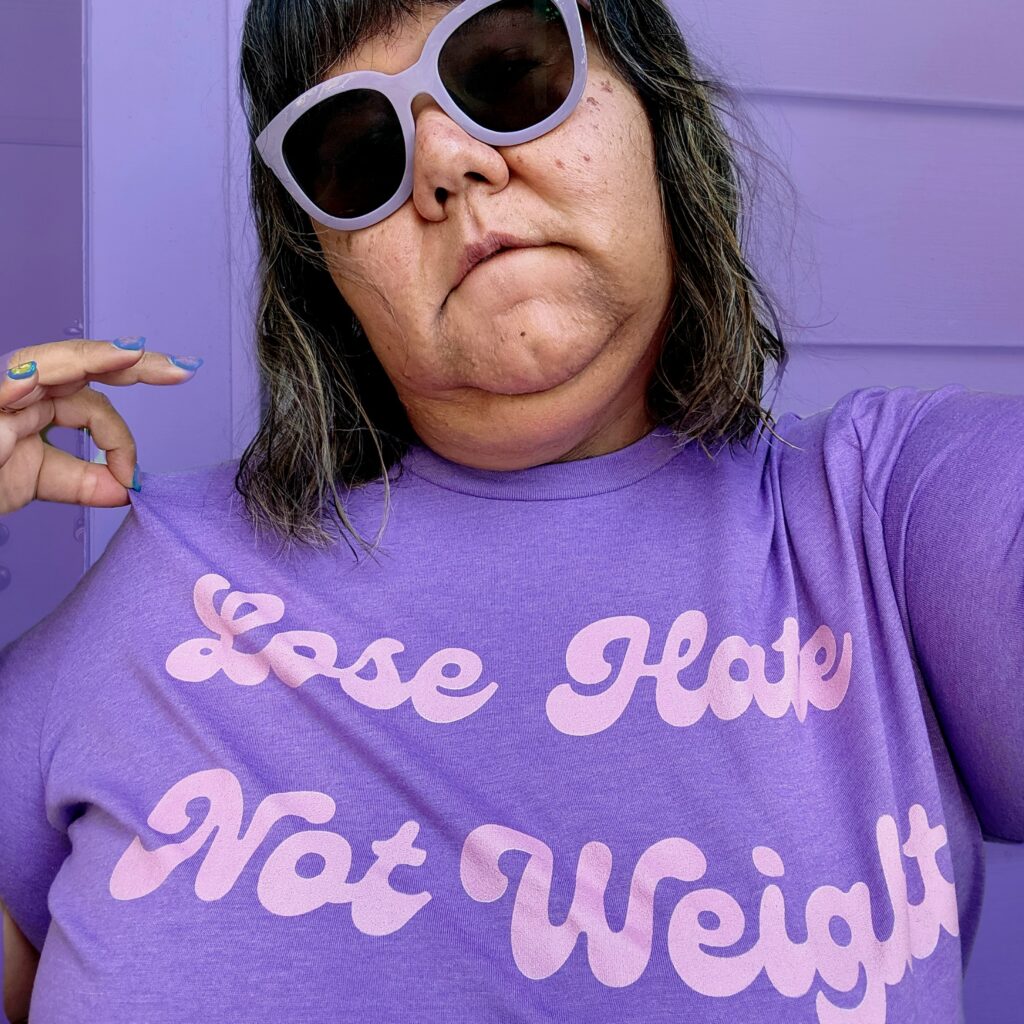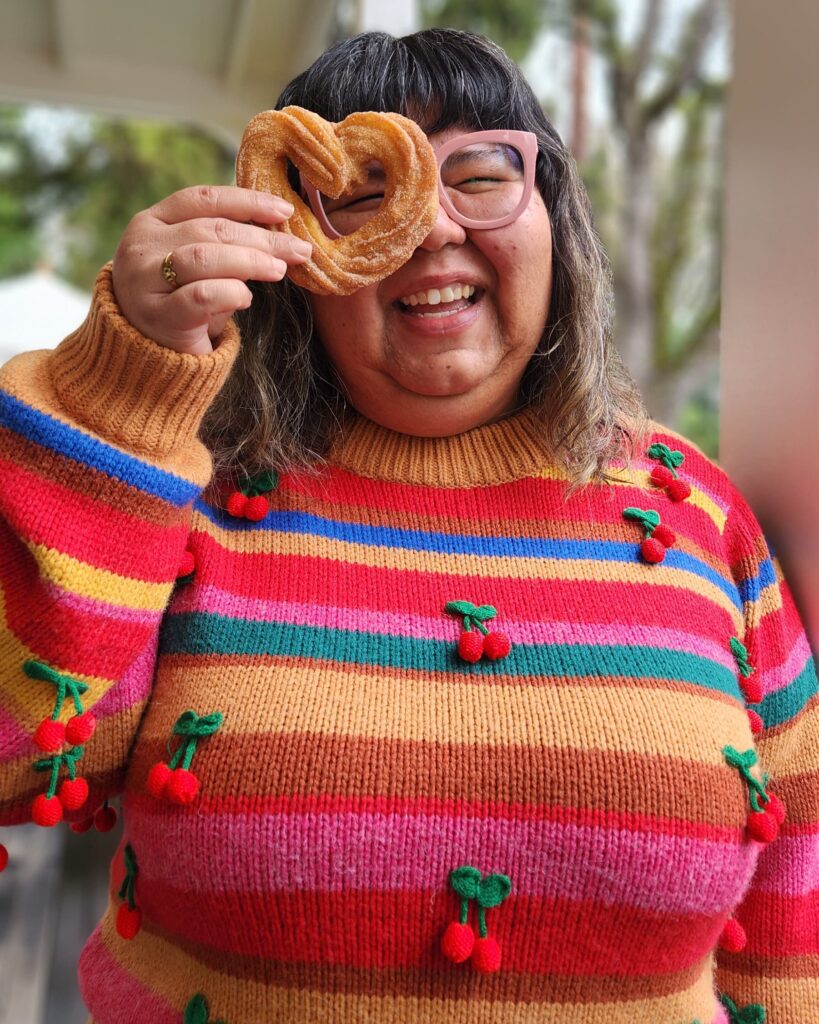The Threat of Ozempic “Coercion”
The drugs are everywhere. Oprah takes them; I’ve taken them. But activist Virgie Tovar says that in a fatphobic culture, there’s no such thing as a truly free choice.
By Samhita Mukhopadhyay
Over the last few years, weight-loss drugs—a category that includes semaglutides like Ozempic and Wegovy and the tirzepatide Mounjaro—have surged in popularity; so have conversations about them. Oprah, who is taking a semaglutide, just hosted a special on her evolving feelings about weight loss; body-positive influencers who have decided to go on these drugs are being asked why. I have written about my own experiences both taking and later coming off Mounjaro, including my concerns about what taking a “diet drug” might mean for my longtime commitment to size inclusivity.
I wasn’t sure there were many more new thoughts around this issue. But a recent conversation with Virgie Tovar, the longtime fat activist and the author of You Have the Right to Remain Fat, made me think differently. Tovar has been vocal about her feelings about Ozempic and what it means for the lived reality of fat people. I asked her to talk to me about it all.
Samhita Mukhopadhyay: I’ve been dying to have this conversation with you, Virgie. You’ve written about fat politics and done groundbreaking work in the fat inclusion space for decades. What are your thoughts on Ozempic?
Virgie Tovar: The question for me is: What does going on Ozempic look like in a culture where there’s so much fatphobia? I’ve always wanted women to be able to choose whatever is going to help them thrive within the culture we live in. For me, it’s been fat activism; it’s been being anti-diet, it’s been being fat. These are the things that have helped me thrive. I’ve never been happier, I’ve never been more connected, and I’ve never felt more successful. I want a world in which people can choose to do whatever is going to help them [while] understanding that there is no truly full autonomy to choose. I think about the arguments that feminists were having in the eighties around what consent even means in a culture [of] misogyny. That question haunts our culture in all these different ways.
How do you address the question that everyone brings up when anyone talks about fat acceptance: “What about your health?” Oprah just did another special on weight loss—this time, taking on diet culture. And it wasn’t terrible! But she still said that “obesity is a disease.” What do you think about that?

One of the things that’s really important to understand is that the American Medical Association’s decision to classify obesity as a disease [in 2013] was a political decision. It wasn’t a data-driven decision. There was a committee that was assigned to do a literature review and to make a call based on the review—and their call was [obesity] does not qualify as a disease. [The AMA moved forward with the decision despite the committee’s recommendation.] This is one of those itty-bitty moments in medical history that gets completely buried. The only headline was obesity disease, obesity disease.
The AMA decision, inadvertently or not, created a pathway for physicians to step in and become the face and the leadership of diet culture. And now we’re looking at prescriptions. Now we’re looking at medication; now we’re looking at pathology. We’re not [just] talking about beauty and whether or not you can wear a bikini in summer; we’re talking about diabetes. Which is [a significant] shift because an unregulated non-physician-run diet industry doesn’t get the [same] traction that a lab-coat-wearing person talking about illness [does].
What I find so fascinating about this whole conversation is that fatphobia and weight-loss preoccupation are so central they create a reality in which all outcomes end [with weight loss]. And there’s another universe in which when people have a health concern, instead they think, Why don’t we have universal healthcare? There’s a world in which we look outward, and we demand—with the same fervor that we’re searching for Ozempic—that we change the policy and that every single person has universal healthcare. There’s a world in which when people start to have [health issues], they think, why are we working so hard? But that’s not what we do.
What amazes me is there are a million potential health interventions available to human beings, but no one sees any of those. [Weight loss] is the only solution we’re comfortable with.

And what is your response to people who reiterate the research about obesity and life expectancy?
The culture is obsessed with one piece of data, which is that fat people live shorter and less healthy lives than thin people. And what’s scary to me is that one piece of data gives pharmaceutical companies and doctors this cavalier attitude. It creates an extremely terrifying, morally hazardous reality in which whatever happens to us [as we try to lose weight] is just collateral damage; it’s all learnings on the way to the solution [of weight loss] that they truly believe is just around the corner. When weight science is very clear that it’s not. Unless we’re talking about literally genetically altering zygotes, unless we’re talking about eugenics, there isn’t a reality in which there aren’t going to be bigger people and smaller people.
There is no single data point that tells an entire story. When you look at the multiple data points [around weight and health], they tell you a [more] clear story. So, the first additional data point I want to bring up is that all marginalized groups live shorter or worse lives than people who are in a dominant group. Black Americans still live shorter lives than white Americans, and people in the LGBTQ community have worse health outcomes than people in the straight community. So, right now, weight discrimination is legal federally. When we accept what minority stress theory teaches us—which is that all marginalized groups have worse health outcomes—that starts to fill out the story.
We have this idea that without diet culture, Americans would just eat nonstop and become bigger and bigger—but that’s a lack of understanding of basic data: Dieting makes us binge-eat and increases our weight over time.
[With other issues], we don’t use the framework of “We have to change that person” in order to fix it. We understand that there are societal problems that need to be solved in order for people to have a better quality of life and longer life expectancy. It is only our fat phobia that disallows us from using the frame that we use to understand every other civil rights issue.
Then the second data point is that even though our culture thinks that weight loss is awesome and healthy, weight science is very, very, very clear—the body and the nervous system may experience weight loss as extremely distressing. The third data point is that we know that people who are in larger bodies who don’t have high internalized fatphobia have [better] health outcomes [than] people in the same larger bodies who do. They don’t have the same [reduced] longevity outcomes as people who do internalize fat phobia.

So, what do weight-loss drugs mean in the context of all this?
We try to create environments of neutrality where people can make the right decision around serious medications but that is not the environment we are in [around weight loss]. I’ve been using the word coercive to describe it.
Can you expand on what you mean by “coercive”?
Number one: we live in a culture that hates fat people. I think that’s changing, but people really still believe that the worst thing you could be is fat. So imagine making a decision about whether or not you’re going to take a medication that has pretty intense side effects, and that is very costly in the context of If you take this, you will [no longer] be part of a group of people who are reviled or discriminated against.
I can imagine it.
Now that we’re understanding it’s wrong to promote weight stigma, the thing that feels like it’s in the air—that continues to be the dog whistle—is like, But health! You can convince yourself that nobody should be pressured to look a certain way. And that’s easy to get behind because we all kind of know that’s wrong. But what they’re doing is this brilliant rhetorical pivot. How could you argue health?
When the path to that “health” (i.e., diet culture) is not always very…healthy.
Yeah. The other part of the story that people have a hard time understanding is a lot of the health outcomes that higher-weight people have are also correlated with chronic dieting and chronic food restriction. We have this phenomenon where [after dieting] your body is now armed and ready for when you do this again. And the way that it’s doing that is by increasing your baseline weight. We have this idea that without diet culture, Americans would just eat nonstop and become bigger and bigger—but that’s a lack of understanding of basic data: Dieting makes us binge-eat and increases our weight over time.
There’s also been a pretty robust conversation about body-positive influencers taking these drugs. It was reported in The Washington Post that one of these drug companies had reached out to you to see if you’d be interested in going on a GLP-1. Why do you think they are going after influencers?
Plus-size women [authoring] their own stories changed the culture; people didn’t know that they could opt out of dieting until body positivity came around. And now that the genie’s out of the bottle, it would take an incredible reversal—which I think, frankly, some of these pharmaceutical companies are trying to do. They see it, right? Why in the world are you targeting body-positive influencers if we’re not a threat?
So, after reading everything I’ve written about my own journey about going on and off Mounjaro, and especially making the decision to take the drug after my father died from diabetes-related complications—what advice would you have given me throughout this?
The very first thing I would’ve told you is grieve. Don’t let the note that stays in your mouth about the passing of your father be that of phobia.
And then I would say, let’s talk about what being on this medication might look like, and let’s allow time to process—read, read it again, have questions about it. I guess for me, for people making decisions, the timeline would be longer. I think there would be serious conversations about what’s really at stake here. And I think in my ideal world, I’m saying to this person, you have the right to take this medication. No one can take that away from you. But don’t let fatphobia be the thing that pushes you from a no to a yes.
 Samhita Mukhopadhyay is the Editorial Director of The Meteor. She is the author of the forthcoming book, The Myth of Making It. She is the former Executive Editor of Teen Vogue and is the co-editor of Nasty Women: Feminism, Resistance and Revolution in Trump’s America and the author of Outdated: Why Dating is Ruining Your Love Life.
Samhita Mukhopadhyay is the Editorial Director of The Meteor. She is the author of the forthcoming book, The Myth of Making It. She is the former Executive Editor of Teen Vogue and is the co-editor of Nasty Women: Feminism, Resistance and Revolution in Trump’s America and the author of Outdated: Why Dating is Ruining Your Love Life.